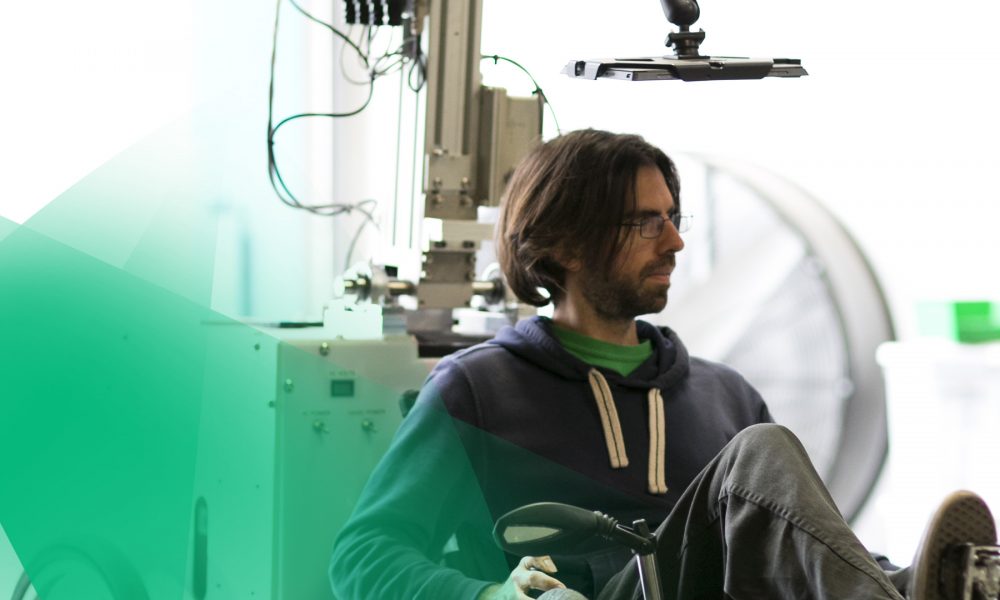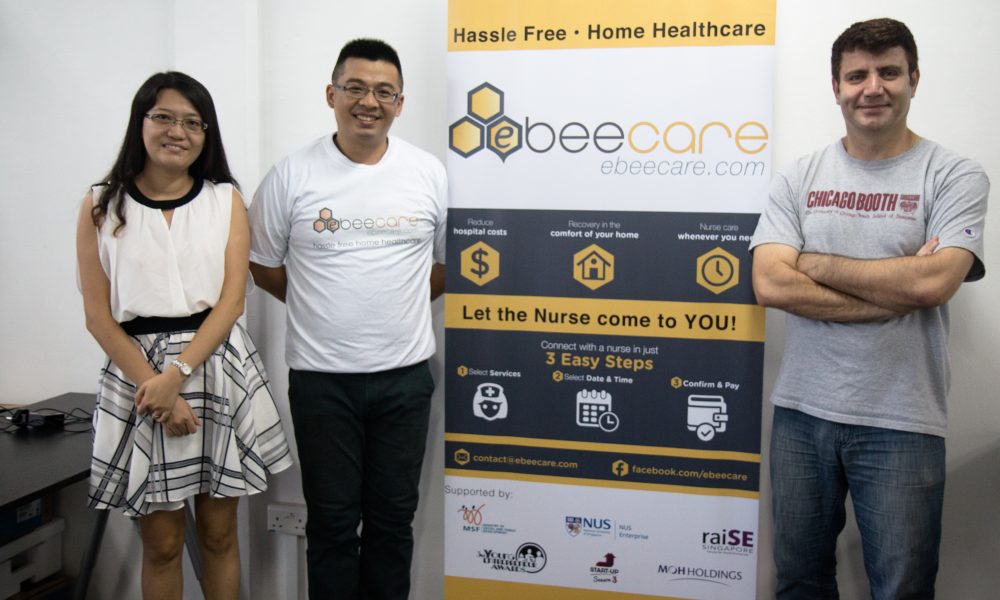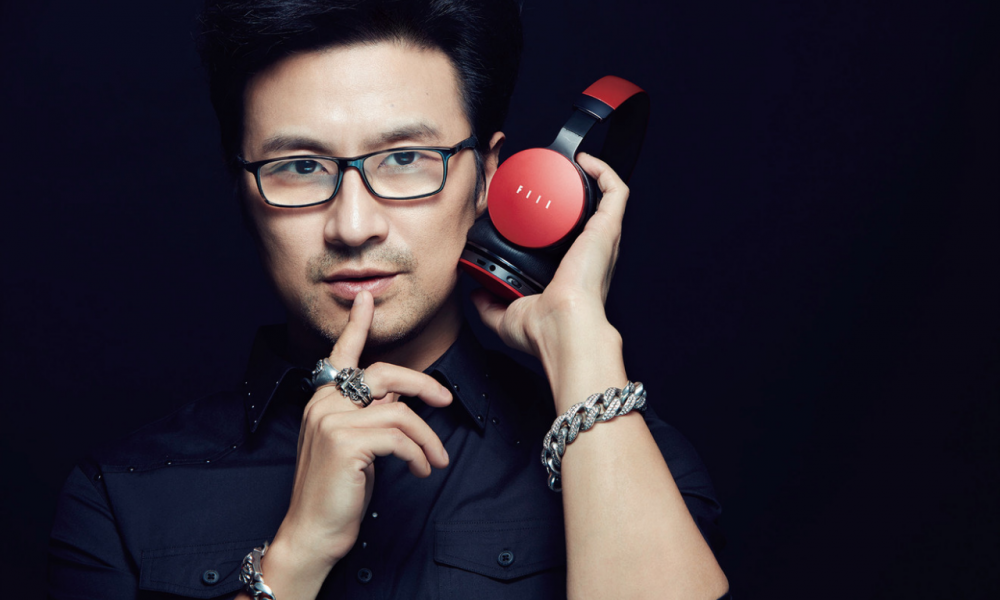Category: Startup
Taiwan’s Next Entertainment raises US$25 million in Series A round led by China live streaming app Inke
Taiwan-based global live broadcasting platform Next Entertainment has raised US$25 million in its Series A financing round for its newly launched flagship app, MeMe.
The capital is intended for global expansion as Next Entertainment aims to export and mirror the success of its predecessor Inke beyond China. This will also include hiring talents in San Francisco, Tokyo, Taipei and Beijing.
Founded by Internet entrepreneur and FunPLus founder Andy Zhong, Next Entertainment was incubated by Inke, the Chinese mobile live streaming giant which is also the round’s lead investor.
Other Series A participants also include game developer FunPlus, leading Chinese venture capital company GSR Ventures, San Francisco-based investment company Mayfield, as well as Signia Venture Partners.
“As an investor in Inke, we saw its incredible growth in China. Their partnership with a proven east-west entrepreneur like Andy is very exciting, and we’re thrilled to be able to work with them both again,” GSR’s managing director, Richard Lim said.
As part of the funding agreement, Next Entertainment plans to leverage Inke’s experience in the live streaming market to deliver more tailor-made and interactive services to global users.
“There’s a revolution happening in the entertainment industry, and we’re happy that our partners at Inke and our Series A investors are part of it.” the Founder and CEO of Next Entertainment, Andy Zhong said.
“We’re excited about live streaming as a form,” Andy Zhong adds. “By building ways for content creators to engage and interact with their fans in real time and to earn money doing it, Inke has changed people’s lives. We’re going to expand that globally.”
MeMe is a live streaming platform that enables anyone to stream, interact with their audience, build a following and get paid to do it. With MeMe, livestreamers can do live performances such as singing or talking in a very funny way.
Audiences on MeMe can also interact with live streamers and other viewers, showing their support, strengthening their profile and increasing their own following along the way.
“As far as monetization goes, you can think about this as digital tips for performers who have hyper-local appeal,” said Mayfield managing director Tim Chang. “If you bid high enough, you might be the preferred fan or the one who gets to make a request. It mimics real-life behavior at clubs, where you buy someone a bottle of champagne.”
The service was launched in Taiwan in October 2016 and is slated to launch in other territories in 2017.
By Vivian Foo, Unicorn Media
GIC, Tencent, Navlnfo to acquire a 10 per cent stake in open location platform HERE
Singapore’s sovereign wealth fund GIC, together with China’s leading provider of digital maps and location services, NavInfo as well as internet value-added services, Tencent Holdings will jointly acquire a 10 per cent stake in HERE, an open location platform company.
Commenting on the acquisition, GIC private equity chief investment officer Choo Yong Cheen said, “As a long-term value investor, we are confident HERE is well-positioned to extend its success in automotive space to areas of Internet of Things, smart cities, and fleet management.”
“We believe this strategic collaboration with NavInfo and Tencent will generate good momentum for its global expansion and its development of HAD (Highly automated driving) Map,” he added.
However, aside from stake acquisition, the deal also sees HERE, Navlnfo, and Tencent Holdings Limited forming part of a deadlock (50:50) corporate joint venture to develop and offer best-in-class location services for the Chinese market, according to the company’s announcement on Tuesday.
“Our intention has been to broaden our shareholder base to reflect how location intelligence will fuel invention and expansion across different industries in all parts of the world.” HERE Chief Executive, Edzard Overbeek said. “We are therefore excited to welcome NavInfo and Tencent both as strategic investors who share our vision of the future. We also welcome GIC as a financial investor who values the long-term prospects of the company.”
Based on their cooperation, HERE, a provider of maps and location services in about 200 countries, will also extend its services to China utilising Navlnfo data and services. enabling location services for both Chinese and international customers across a range of industries.
“The automotive industry is on the eve of revolution to autonomous driving and alternative energy. We are excited about joining forces and uniting market leaders to deliver outstanding value and take our industry to the next level. NavInfo and Here have a more than ten-year cooperation history, and are now both in transformation phase to extend our heritage in traditional navigation to intelligent location services and autonomous driving and artificial intelligence for a global customer base.” NavInfo CEO Patrick Cheng said.
On the other hand, Tencent will also be implementing the mapping and location platform services and tools from HERE in its own products and services both in China and internationally, as well as working with HERE to improve both companies’ products to deliver better experiences to their customers and exploring new product and technology development opportunities.
Tencent Vice President of Mobile Internet Group Julian Ma said: “The strategic partnership with HERE demonstrates our commitment to connect our users with best-in-class services. Combining HERE’s world-leading location intelligence technologies with Tencent’s social strength, unique understanding of user behavior and broad location data ecosystem, this collaboration further enhances Tencent’s location services. It also facilitates Tencent’s exploration of future technologies including autonomous driving and artificial intelligence.”
Besides, as part of the plan, the JV will also see the deployment and localisation of the former’s Auto SDK, a flexible and modular software development toolkit for embedded in-car experiences for the Chinese market, in addition to a collaboration on creating and provisioning of high definition mapping and location services.
This planned transaction will also result in the further broadening of the company’s shareholder structure as existing investors in HERE, which includes global auto giants such as Audi AG, BMW AG, and Daimler AG will reduce their holdings correspondingly by an equal measure.
The transaction, which is subjected to regulatory approvals is expected to be completed in the first half of 2017.
By Vivian Foo, Unicorn Media
Global accelerator Startupbootcamp launches digital health accelerator in Chengdu, China
Startupbootcamp, which operates a global network of industry-focused accelerator programmes, has launched their first China-based programme, a digital health accelerator in Chengdu, the capital of China’s Sichuan province.
This programme marks a joint partnership between Startupbootcamp and Thinkzon, a Chinese incubator accommodating over 500 enterprises in mobile internet, software R&D, and digital media.
Through this programme, Startupbootcamp is focused on scaling the country’s digital health ecosystem given the significant digital opportunities that exist in China by virtue of the size of its market.
Chengdu was selected due to its support for entrepreneurial initiatives from the city’s local government and healthcare industry. The region is also known for having some of the best hospitals and medical research institution in China.
“The opportunities for digital health in China are vast, not only in the Sichuan region but within the entire China,” said Carsten Kølbek, the co-founder of Startupbootcamp. “The big demand for better health services by the fast growing middle-class and the liberation of the private insurance market requires new and scalable solutions fast.”
The Chengdu programme will be the first of ten China-based accelerators as it plans to roll out in the next three years. The Chengdu Startupbootcamp is now accepting applications until 20th March 2017.
Application is open to startups from within China as well as neighbouring countries. The accelerator will focus on ventures operating in areas such as digital medical devices, diagnostics, genomics, wearable devices, and remote health monitoring.
After Chengdu, the next Startupbootcamp China programme will be in Shanghai.
Ten startups will be selected for the incubator programme which will commence in May 2017 and run for three months.
During the 3-month program period, the selected companies will be supported through every stage of their business growth – from market fit and product development to sales – through tailored and hands-on sessions.
The ten startups selected for the Chengdu program will receive RMB 100K (about US$14,400) in seed funding, free office space, mentorship from more than a hundred industry specialists, and access to Startupbootcamp’s large international network in more than 30 countries.
Besides, the ten companies will also have the opportunity to work with Thinkzone and Strartupbootcamp’s healthcare partners in Chengdu for testing and product development. One example being a clinic with a patient base of 15 million patients.
Startupbootcamp’s overall China expansion will be led by Steven Tong, who has been the Managing Director for Startupbootcamp’s Singapore program since 2015. Tong will be joined by Christina Pamela Christiansen who’ll lead the Digital Health program as the Program Director and Feng Jingyue as COO.
“We are interested in startups that have shown traction or startups that have launched a serious prototype. In our digital health programs in Berlin and Miami, we have received 300-500 applications for each program. We expect the number to be even higher in China, so the competition is going to be fierce,” Christiansen said.
Speaking on the development, Chao Wang, Director of Thinkzone’s partnership with Startupbootcamp, also said, “Startupbootcamp’s proven model for igniting entrepreneurial ecosystems will help attract world-class talent to Chengdu and cultivate our growing community of local innovators by providing them with the resources they need to succeed.”
By Vivian Foo, Unicorn Media
Healthcare startup, eBeeCare to expand into India and China in 2017
eBeeCare is a local startup that links freelance nurses and caregivers with patients through providing an online platform which simplifies the search for homecare services such as elderly care and physiotherapy.
Based in Singapore, the startup is looking to expand into the Asian markets in 2017 – placing at least 50 qualified caregivers to provide similar services in Pune, a city in China, by March next year.
“The startup aims to have around 1000 freelance caregivers in India and at least 50 full-time employees to meet additional demands.” said John Chen, the co-founder and chief executive officer of eBeeCare.
Founded in 2014, eBeeCare uses sophisticated algorithms to crawl through a user’s requirement along with the particulars of registered healthcare providers to select the most suitable care provider for each client.
Prior to this, the startup has raised capital in an undisclosed amount from Govin Capital and a US$ 35,000 grant from the SPRING Singapore and the Ministry of Social and Family Development.
With the funds raised, eBeeCare can proceed its expansion plan to the market for homecare service in the second most populous country. The startup is also looking to collaborate with hospitals to manage their nurse platforms as to better utilize resources.
“Startup needs to move fast, and we want to see the business up and running in India early next year,” said Chen. “We can move into India faster as there are fewer restrictions, and it is easier to get the government’s approval.”
However, at the same time, the startup stress that it is important to maintain strict quality control on the caregivers in India through screenings and interviews.
In Singapore, nurses who wish to join eBeeCare must be registered with the Singapore Nursing Board, have at least two years of hospital experience and undergo a face-to-face interview.
One of the potential challenges that the startup will face operating overseas is the varying demands of patients in different countries, from cultural, language or infrastructure differences.
“We adjust our services based on needs. I’m sure there are some services in normal demand in Singapore but will be high demand in India, or vice versa,” said Haluk Tanik, the co-founder and COO of eBeeCare.
Aside from India, eBeeCare is also eyeing the Chinese market, planning to begin with the province of Guangdong as due to its position as a financial hub. However, capital alone is insufficient in cracking the Chinese market.
“Doing business in China is not about the money you have,” explains Chen. “What’s more important is connections and the resources that you have.”
eBeeCare is currently in talks with a few investors in China, including Shanghai Kindly Enterprise Development Group (KDL), one of the biggest medical polymer product manufacturers in China.
Back in Singapore, the startup will also roll out expansion plans next year.
While John Chen envisions eBeeCare to be the main provider of homecare in Asian countries, in the long run, he is also maintaining a cautiously optimistic outlook.
“I’m still 50-50 on whether eBeeCare will be able to be a regional or even global service provider, but at least we have the data, we know what people want, and the best form of care services they enjoy. This, in the long run, will really be a gold mine.” the founder of eBeeCare said.
By Vivian Foo, Unicorn Media
Backed by Chinese Rock Star Wang Feng, China’s FIIL to be the next Beats by Dr. Dre
Chinese rock star Wang Feng is recreating a Dr. Dre phenomenon with his headphones brands – FIIL. Like Beats, the Beijing-based FIIL designs are fashionable but still high-fidelity.
Rising to fame in China in the late 1990s, Wang Feng is a rock veteran who is involved in a lot of trades, from working on his headphone startup, launched last year to holding the position as one of the panelists on China’s version ofThe Voice.
Leon Wu, FIIL’s CTO with a decade of experience in audio engineering, name-checks Beats and Bose as brands that the startup admires and model after. “We try to absorb good things from both,” he said.
“The Beats marketing strategy,” Wu adds, “…is also one of the things FIIL would like to emulate.”
Looking at Dr. Dre’s array of product placement, indeed FIIL has its own version, as Wu told, “During the 24th birthday celebration of Hong Kong singer G.E.M., Wang gave her a pair of FIIL headphones. She put the headphones on in front of a bunch of reporters, and it attracted a lot of attention and a boost in sales.”
Since then, FIIL has been in the hype, benefiting from a ton of free and glamorous publicity from Wang Feng’s celebrity friends when they wear them in front of paparazzi or when the company’s first product, the FIIL Wireless, won design awards from Red Dot.
A majority of FIIL’s users are from mainland China, but like a number of young startups across the nation, the audio equipment maker is also looking to advance onto the international platform in the hope of replicating the success of DJI, Xiaomi, and One Plus.
A step to accomplish the feat, FIIL has recently launched itself on Kickstarter on December weekend, testing the waters with Carat Pro, a set of wireless headphones that comes with some sporty features.
The wireless buds do real-time heart-rate monitoring, audio coaching, and tracking of distance, steps and workout duration – a first for the startup to blend a fitness tracker with its earphones.
“We want to go above and beyond the scope of traditional earbuds with the FIIL Carat Pro earbuds,” said FIIL president and Rock Star Wang Feng.
FIIL Carat Pro earbuds also include Valencell’s PerformTek biometrics, to create a high-tech sports earbud that is said to be not only fashionable but even more accurate and advanced than smartwatches and fitness trackers.
The earbuds are also modeled by actress Zhang Ziyi, star of Crouching Tiger, Hidden Dragon who was married to Wang Feng last year.
As per details of the project, the Kickstarter project targets a pledge to raise US$50,000 in 40 days and will end on Jan 15, next year. To date, the project has reached half the funds backed by 189 backers.
At present, there are only five types of FIIL headphones on the market: FIIL, FIIL Wireless Bluetooth, FIIL Bestie headphones, FIIL Diva Pro Headphone and FIIL’s Carat Pro. The headphones cost between 599 and 1,999 yuan (about US$ 86.20 and US$ 287.80).
In 2015, FIIL has received a US$10 million seed funding. Looking into the future, FIIL’s plan to cover not just headphone, but to extend its reach to speakers and even smartphones as well.
By Vivian Foo, Unicorn Media





